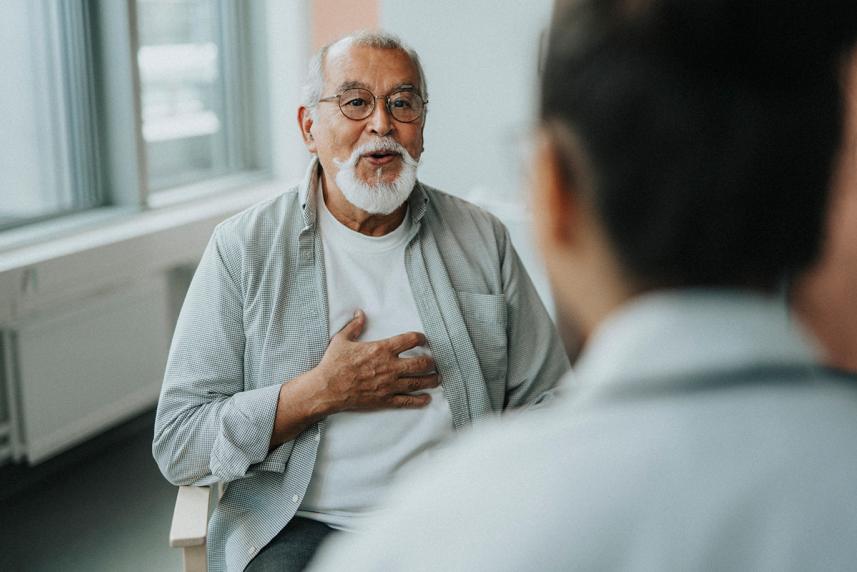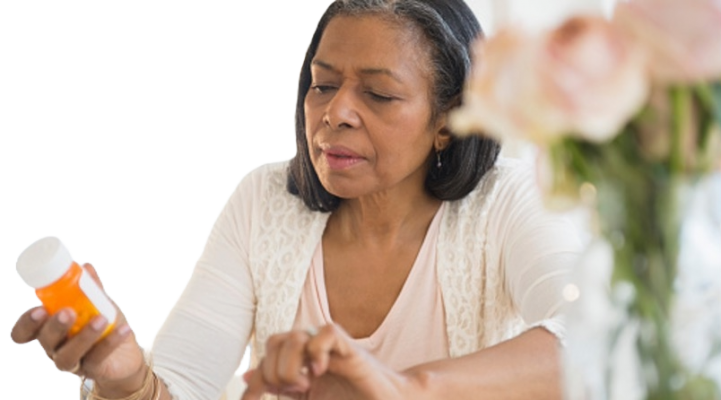8 questions to ask your diabetes care manager
Just diagnosed? If you have questions, we have the answers.

Finding out you have diabetes can be overwhelming. There’s a whole new way of eating to learn, plus testing and medications to weave into your already busy life. We’ve got the scoop on the top questions you’ll want to ask your doctor or diabetes care manager.
Can I ever eat carbs again?
Yes! With diabetes, moderation is key. So when it comes to carbs, keep an eye on portion size. “Carbohydrates are an important part of a healthy diet,” says Martin Abrahamson, M.D., an endocrinologist at Beth Israel Deaconess Medical Center in Boston. “Whole-grain breads and whole-wheat pasta can be good for you. They provide fuel for energy and some key nutrients.” Limit your carb portions to one-fourth of your plate.
The American Diabetes Association recommends asking your doctor or dietitian what’s right for you. Go for carbs that are rich in nutrients, such as beans, legumes, and fruit. (Learn more about the myths surrounding diabetes and food here.)
Did you know HMSA members have access to personalized support to help you manage your health and well-being? Learn more here.
Can I cure my diabetes by losing weight?
No. Being overweight doesn’t mean that you’ll have diabetes. And losing weight doesn’t make it go away. But if you have diabetes, losing weight can reduce or even eliminate your need for medications.
Dropping just a few pounds can improve your blood sugar control and help prevent complications. Ask your doctor or care manager what your healthy weight range is and whether you need a weight management plan.
Why is my A1C number such a big deal?
The A1C test is used to measure your average blood sugar over the past two or three months. That’s important, because when your blood sugar is off, it affects your overall health. With A1C levels above 7, you increase your risk of serious diabetes complications, including stroke, heart disease, blindness, and loss of limbs. Be sure to ask your diabetes care team what your target A1C should be.

Staying on top of your medications is easy and affordable with our mail-order program and automatic refills.
What does high blood pressure have to do with diabetes?
Two-thirds of people with diabetes also have high blood pressure. Blood pressure is the force of your blood pushing against the walls of your blood vessels, which is measured as the force of the blood when your heart beats (systolic) over the force of the blood when the heart rests between beats (diastolic).
If the top number is 120 to 129 and the bottom number is 80 or less, you have elevated blood pressure. If the top number is 130 or higher, or the bottom number is over 80, you have high blood pressure.
People with diabetes who have high blood pressure are at a greater risk of having a heart attack or stroke. High blood pressure has been linked to serious diabetes-related eye conditions. High blood pressure can lead to blockages in the blood vessels in the eye, which can cause them to leak fluid and cause nerve damage.
High blood pressure doesn’t have obvious symptoms, so get it checked at every doctor’s visit. Keeping it stable is key. Also ask your doctor or care manager how much to cut back on salt and alcohol. Why? Both of these can raise your blood pressure.
Looking for a primary care provider or specialist? Go to hmsa.com and use Find a Doctor to locate one near you.
Is it all right for me to have an occasional drink?
Yes, with your doctor’s approval. Drinking isn’t completely off-limits, but you should be aware of how alcohol can affect your blood sugar.
“People with diabetes can include alcohol in their diet in a responsible way,” advises Elizabeth Staum, a community health educator at Nyack Hospital, in Nyack, New York. Most diabetes educators say that means no more than one drink per day for women and no more than two for men.
If you have diabetes, talk with your doctor about whether drinking alcohol is safe for you and how it might affect your diabetes medicine.
Also, keep in mind that alcohol can cause negative effects in people with diabetes, including high cholesterol, liver damage, and weight gain. If you’d like an occasional drink, be sure to eat something with it. Avoid sweet wines, liqueurs, craft beers, and sweetened mixed drinks (such as margaritas, daiquiris, and mojitos). Try a small glass of wine or some light beer.
Can exercise really help my diabetes?
Yes! Exercise is good for everyone, but especially those with diabetes. “Regular exercise may help lower blood glucose level and your A1C,” says Jessica Matthews, D.P.H. She’s an assistant professor, director, and creator of the Master of Kinesiology in Integrative Wellness program at Point Loma Nazarene University in San Diego.
Plus, exercise helps with weight control and it can lower blood pressure and help keep your heart healthy and your mood bright.
Be sure to include resistance training in your fitness plan. That means light weights, resistance bands, or body-weight exercises. Talk with your care manager first to plan the right workout for you. And monitor your glucose level before and after each workout.
Recommended reading: The older adult's guide to getting more active
If I’m on diabetes medications, should I avoid over-the-counter remedies?
It’s good to be cautious. Your blood sugar level is affected by more than food, medicine, and insulin. Many prescriptions and over-the-counter (OTC) medications, and even some supplements, can affect blood glucose.
If a person notices a change in their blood sugar, they might simply adjust their diet or insulin, explains Jasmine Gonzalvo, Pharm.D., a spokesperson for the American Association of Diabetes Educators. They might not realize that OTC medicine could be the culprit.
Instead, she suggests talking with your care manager or pharmacist about every medication, vitamin, and herbal supplement you take. Ask if you can expect an increase or decrease in blood glucose when you take them. “They can help you think through the risks and benefits of using the medicine,” Gonzalvo says.
Common medications and supplements that affect blood glucose include:
- Cholesterol-lowering medications
- Allergy and asthma medications
- Beta-blockers
- Some antibiotics
- Sweetened cough syrups and liquid pain relievers
I’ve heard diabetes can be hard on my eyes. What should I do to keep my vision sharp?
Diabetes can affect your retina, the part of your eye that senses light and sends signals to your brain about what you see. It can cause diabetic retinopathy, which is the leading cause of vision loss in working-age adults in the United States, according to the Centers for Disease Control and Prevention.
But more than 95% of diabetes-related eye problems can be prevented, says Rahul N. Khurana, M.D., an eye surgeon and spokesperson for the American Academy of Ophthalmology. If caught early, vision problems can often be stopped or reversed. Follow these strategies to prevent eye damage:
- Schedule a yearly appointment with your eye doctor that includes a retina exam.
- Get your A1C tested several times a year.
- Keep your blood pressure and cholesterol levels under control.
- Quit smoking.
Additional sources:
Lifestyle tips for diabetes: National Institute of Diabetes and Digestive and Kidney Diseases
Carb counting and diabetes: American Diabetes Association
Diabetes and healthy weight: Centers for Disease Control and Prevention
Understanding A1C: American Diabetes Association
Diabetes-related health conditions: Centers for Disease Control and Prevention and American Diabetes Association
Diabetes and high blood pressure: American Diabetes Association
Diabetes and alcohol: Medline Plus
Diabetes and vitamins and supplements: American Diabetes Association
H3832_4038_8750_5MS583_24_C
© 2023, Linkwell Health, Inc. All content owned or licensed by Linkwell Health, Inc. All rights reserved.
